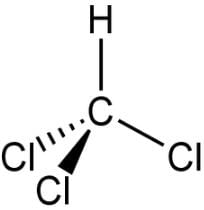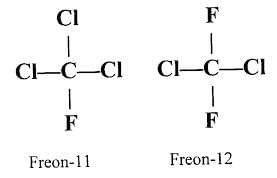Test: Polyhalogen Compounds - JEE MCQ
Test Description
10 Questions MCQ Test - Test: Polyhalogen Compounds
Test: Polyhalogen Compounds for JEE 2025 is part of JEE preparation. The Test: Polyhalogen Compounds questions and answers have been prepared
according to the JEE exam syllabus.The Test: Polyhalogen Compounds MCQs are made for JEE 2025 Exam.
Find important definitions, questions, notes, meanings, examples, exercises, MCQs and online tests for Test: Polyhalogen Compounds below.
Solutions of Test: Polyhalogen Compounds questions in English are available as part of our course for JEE & Test: Polyhalogen Compounds solutions in
Hindi for JEE course.
Download more important topics, notes, lectures and mock test series for JEE Exam by signing up for free. Attempt Test: Polyhalogen Compounds | 10 questions in 15 minutes | Mock test for JEE preparation | Free important questions MCQ to study for JEE Exam | Download free PDF with solutions
Test: Polyhalogen Compounds - Question 1
The chloro compound which can be used as fire extinguisher is:
Detailed Solution for Test: Polyhalogen Compounds - Question 1
Test: Polyhalogen Compounds - Question 2
Exposure to lower levels of a compound in air can lead to slightly impaired hearing and vision. Identify the compound.
Detailed Solution for Test: Polyhalogen Compounds - Question 2
Detailed Solution for Test: Polyhalogen Compounds - Question 3
Detailed Solution for Test: Polyhalogen Compounds - Question 4
Test: Polyhalogen Compounds - Question 5
The antiseptic properties of iodoform is due to which of the following:
Detailed Solution for Test: Polyhalogen Compounds - Question 5
Test: Polyhalogen Compounds - Question 6
Which one of the following is the correct formula of methylene dichloride?
Detailed Solution for Test: Polyhalogen Compounds - Question 6
Test: Polyhalogen Compounds - Question 7
Central nervous system can be depressed by the use of which of the following:
Detailed Solution for Test: Polyhalogen Compounds - Question 7
Test: Polyhalogen Compounds - Question 8
Paul Muller of Geigy Pharmaceuticals in Switzerland discovered the effectiveness of DDT as:
Detailed Solution for Test: Polyhalogen Compounds - Question 8
Detailed Solution for Test: Polyhalogen Compounds - Question 9
Detailed Solution for Test: Polyhalogen Compounds - Question 10
Information about Test: Polyhalogen Compounds Page
In this test you can find the Exam questions for Test: Polyhalogen Compounds solved & explained in the simplest way possible.
Besides giving Questions and answers for Test: Polyhalogen Compounds, EduRev gives you an ample number of Online tests for practice
Download as PDF





















